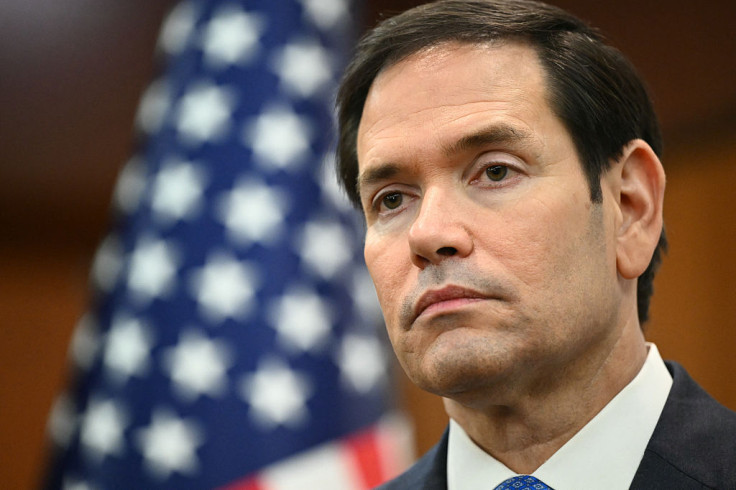
Secretary of State Marco Rubio agreed to return several MS-13 gang leaders protected under U.S. informant programs to El Salvador in order to secure President Donald Trump's deportation deal with Salvadoran President Nayib Bukele, according to a new sprawling report by The Washington Post.
According to sources consulted by the outlet, Rubio assured Bukele in March that the Justice Department would terminate protection agreements for nine MS-13 leaders in U.S. custody so they could be sent back to El Salvador. Some of those men had provided information to U.S. authorities about alleged ties between Bukele's government and MS-13.
The exchange was part of a broader negotiation granting Washington access to El Salvador's high-security "Terrorism Confinement Center" (CECOT), which would later serve as a holding site for hundreds of Venezuelan migrants deported under Trump's order, as reported by The Post. The conversation, officials say, underscored the administration's willingness to trade protected informants in pursuit of its mass-deportation agenda.
Former Justice Department and law enforcement officials warned that such actions undermined years of U.S. work to dismantle the transnational gang and jeopardized the credibility of federal agencies that rely on informants. "The deal is a deep betrayal of U.S. law enforcement, whose agents risked their lives to apprehend the gang members," said Douglas Farah, a U.S. contractor involved in MS-13 investigations.
At least three of the gang leaders Bukele sought had shared incriminating information about Salvadoran officials suspected of negotiating with MS-13 to reduce homicides ahead of national elections. One of them, César López Larios, charged in the United States with overseeing the gang's activities, was deported to El Salvador two days after Rubio's call. The others remain in U.S. custody as their legal cases continue.
The State Department defended the agreement to The Posts, with spokesperson Tommy Pigott saying Rubio's diplomacy "allowed the United States to deport hundreds of gang members" and made Americans "safer as a result." Justice Department officials also characterized the collaboration as part of an "unprecedented success" against foreign criminal networks.
Critics argue the deal may have obstructed ongoing U.S. investigations into Bukele's government, which prosecutors allege secretly met with MS-13 leaders in Salvadoran prisons in exchange for political gains. One former State Department official said returning the informants risked "collapsing" years of evidence-building.
The revelations emerge days after President Trump publicly praised Rubio for his foreign policy leadership during a speech to the Israeli parliament on Monday in which he called him "the greatest secretary of state in the history of the United States," crediting him for helping secure a ceasefire in Gaza and negotiate the release of hostages.
"He and I really fought it out," Trump said, recalling their rivalry during the 2016 campaign. "Now, I'm saying he'll go down as the greatest. He was always smart and sharp, and people respect him." The former Florida senator has become one of Trump's most trusted aides, simultaneously serving as secretary of state, national security adviser, and head of the U.S. Agency for International Development.
© 2025 Latin Times. All rights reserved. Do not reproduce without permission.





